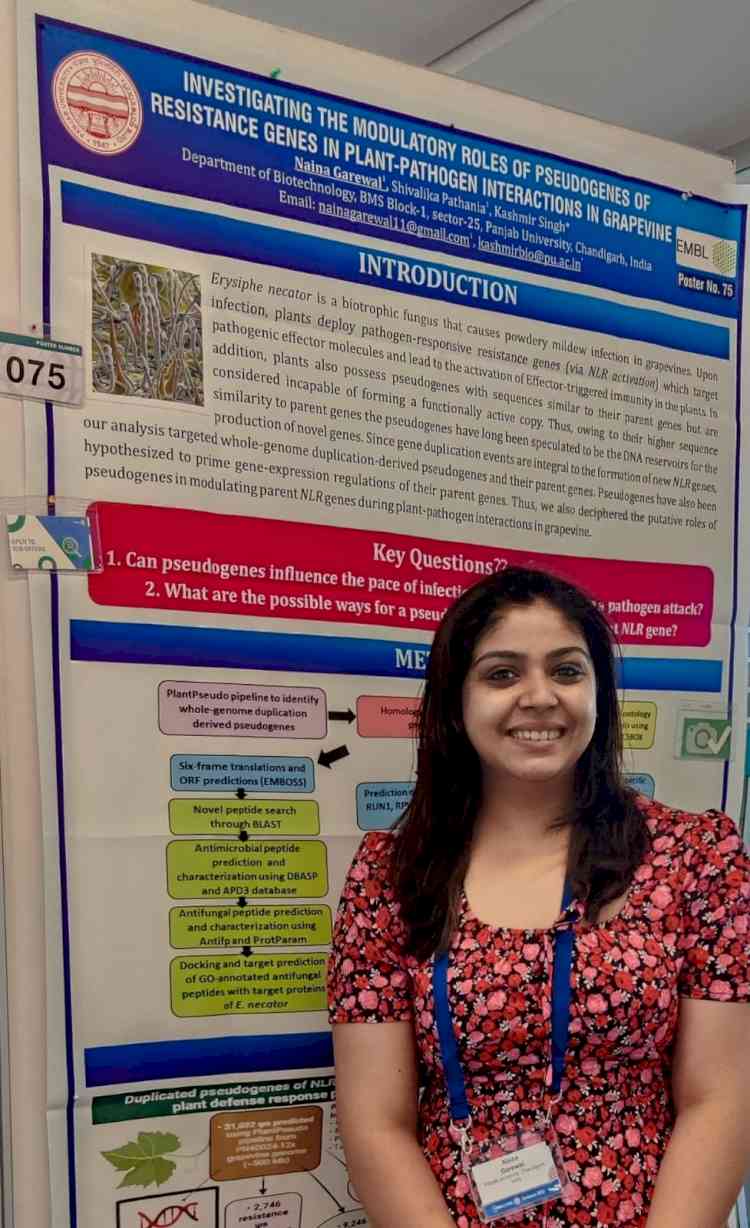Naina Garewal to present her research work at European Molecular biology labs (EMBL) conference
Naina Garewal of Panjab University, Chandigarh went to present her research work at European Molecular biology labs (EMBL) conference on "Innate immunity in host-pathogen interactions in grapevine" held from 17-20th July 2022 at Heidelberg, Germany.

Chandigarh, July 20, 2022: Naina Garewal of Panjab University, Chandigarh went to present her research work at European Molecular biology labs (EMBL) conference on "Innate immunity in host-pathogen interactions in grapevine" held from 17-20th July 2022 at Heidelberg, Germany.
She is doing her Ph.D. under Dr. Kashmir Singh, Professor and Chairperson at the Department of Biotechnology and Coordinator at DST Centre for Policy Research, Panjab University, Chandigarh. Her Ph.D. research is on analysing the interplay between resistance genes as well as their pseudogenes in plant-fungus interactions of grapevine fungus powdery mildew. She presented a part of her research work through the poster titled "Investigating the modulatory roles of pseudogenes of resistance genes in plant-pathogen interactions in grapevine".
This research work primarily focuses on how pseudogenes which are considered as junk or inactive and were previously discarded as irrelevant could have antimicrobial and antifungal potential in them and might be impacting activation and inactivation of plant resistance genes especially in grapes which are extremely prone to fungal pathogen attacks. They are currently working on the prospect on bringing these dead gene elements to life through artificial gene resurrection techniques of synthetic biology. They believe these pseudogenes might be important in giving rise to new genes which impart resistance in plants against fungal infection.
This research study is the first ever study on pseudogenes of resistance genes in plants which are considered to be key in driving the plant defense response against the pathogens.



 City Air News
City Air News 










